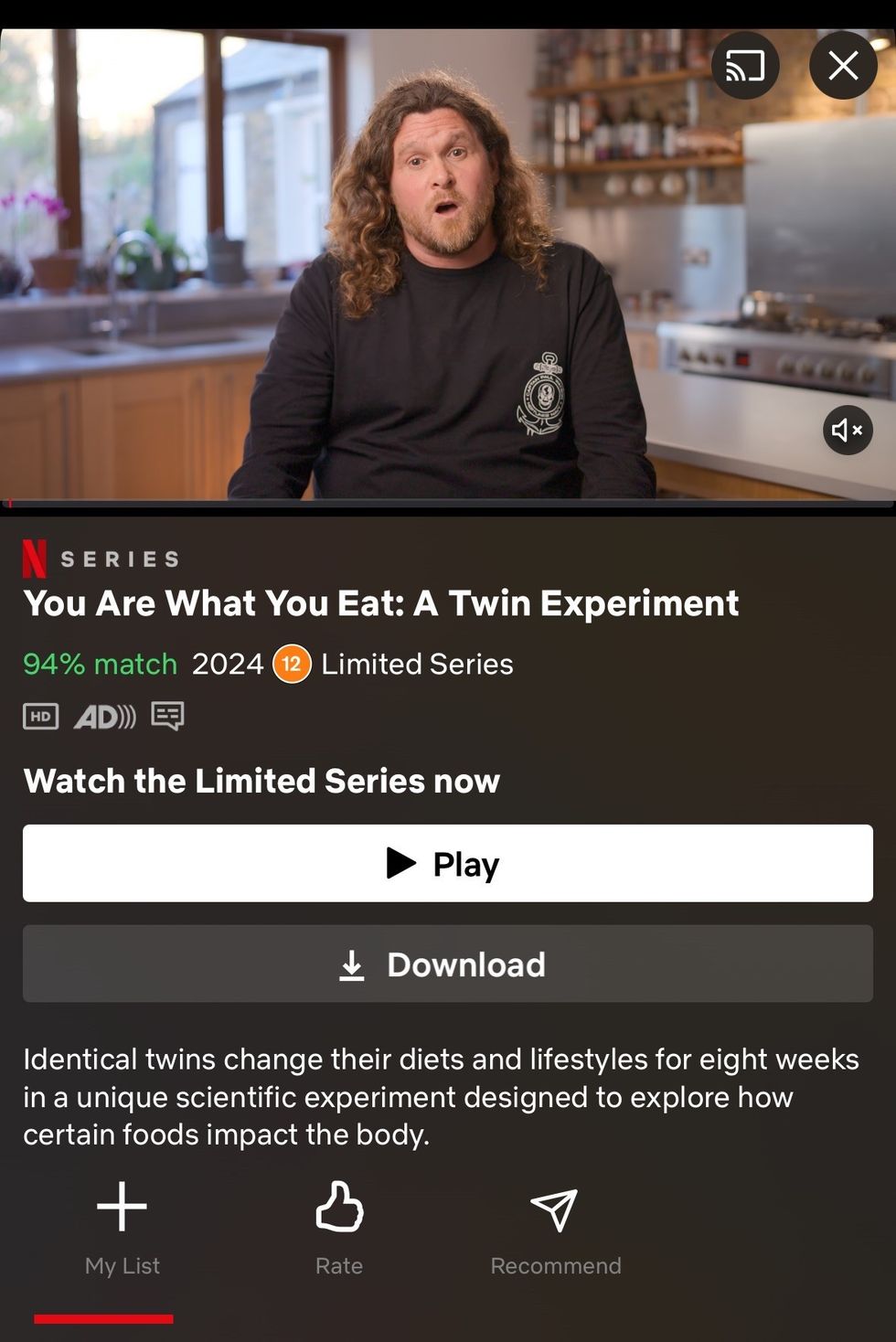Netflix is scrapping a feature that was designed to make it easier to find new shows, documentaries, and films to enjoy amongst the vast library of content available on the streaming service
UNSPLASH
Netflix will use its 3,000 tags to help viewers determine whether a show or movie is right for them
- Introduced in 2021, the feature shows a match percentage for each title
- It uses your viewing history to determine whether it fits with your tastes
- But Netflix will phase out the percentages for users worldwide
- Instead, it will rely on its 3,000 tags to categorise its content
Don't Miss
Most Read
Trending on GB News
Netflix is set to remove a feature designed to help you find something new to watch. The popular streamer isn’t short on shows, documentaries, or films — with a sprawling library of over 6,000 titles — but finding something new to watch with all of that choice can be a struggle.
The streamer is ditching the percentage that estimates how much of any show or film will aligned to your personal taste. The higher the percentage, the closer the match.

The feature is still visible on Netflix UK, offering an approximation of how closely the content of a new show or film matches your tastes. In the example above, Netflix's algorithm believes it's a 94% match
NETFLIX PRESS OFFICE
You’ve probably seen the small line of text stating 98% match or 79% match under a particular movie or boxset. It uses The feature relies on an algorithm that checks each title against your viewing history, checking all previous TV series and films watched on your account.
Netflix doesn’t know whether you’re going to enjoy something, but it assumes that if a show is similar to 95% of the content that you’ve watched on your account, there’s a high likelihood that it’ll have at least some of the same themes as your favourites.

Tags for the new season of Stranger Things categorise the show as "Ominous", "Scary", and "Exciting"
NETFLIX PRESS OFFICE
The match feature was introduced back in 2021 as a replacement for the “Surprise Me” function that randomly picked an episode, documentary or film from the catalogue. This worked like the Shuffle button you'll find on music services like Spotify and iTunes.
Now that the match percentage is on the way out, Netflix is going to go all-in on tags.
These are already present on every title on the streaming service, with genres like “Investigation”, “True Crime”,and “Riveting” listed on shows and films across the catalogue. Netflix uses 3,000 tags to categorise its vast library of content.
According to the New York Times, Netflix employs 30 people who spend all day adding and checking tags on titles in the catalogue. These full-time taggers debate whether to merge similar tags, like “finding love” and “falling in love”, as well as new entries needed to summarise a particular show.
Discussing the importance of tags, Allan Donald, Netflix Director of Product told the NYT: “Imagine magazines that have no cover lines, and there were just photographs on them. Tags make as much of a difference as a cover line in that snap ‘this is for me’ decision.”
There’s no timeframe for exactly when the percentage will vanish from streamers’ screens worldwide, but the company is moving away from the system, which some users found confusing. Netflix confirmed to IndieWirethat it would be phasing out the system permanently.
Netflix is constantly tweaking its service and testing new ideas.
Until recently, the streamer offered a star rating on its titles, before dropping the function in favour of a simple thumbs up and thumbs down.
LATEST DEVELOPMENTS
According to data from its customers, if you don’t find something to watch on Netflix within the first 53 seconds of launching the streaming service, the chance of you watching anything at all drops “precipitously.”








